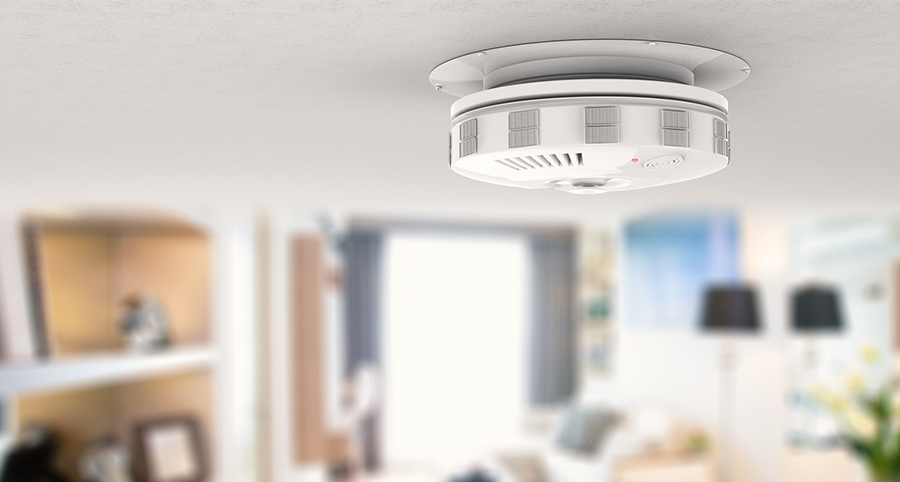Is there a difference between standard smoke detectors vs. monitored fire alarms in State College?

In the State College smoke detector vs. monitored fire alarm discussion, there’s only one champion. Smoke detectors are an essential line of defense in protecting your house from fire, but they have some notable drawbacks. Conversely, monitored fire alarms have more ways to detect a fire and may notify a monitoring team in the event of a disaster. Connecting your fire alarms to a comprehensive smart home also results in additional benefits that your common smoke detectors can only wish for.
Your traditional smoke alarms in State College may be falling short
Protecting your home from fire is a crucial consideration, and smoke detectors play a critical role in keeping your family safe. However, smoke detectors have their limitations. For instance, they are only able to identify smoke, not heat. If there is an emergency in your residence, you might not be warned unless the smoke ascends to the smoke detector. While there are further unmistakable signals of fire -- including a sharp increase in warmth -- if there’s a lack of smoke, there is no sounding of your smoke detector.
What’s more, smoke detectors only sound the alarm when they detect an adequate amount of smoke. When a fire begins slowly, you may not be alerted until it's too late. Various smoke detectors use more than one sensor, which means they will be able to perceive smoke from both a blazing inferno and smoldering remnants. If they start beeping, it’s required of the homeowner to contact first responders after safely leaving the premises.
Monitored fire alarms provide more value than regular smoke detectors
Even though they look about the same as regular smoke detectors, monitored fire alarms can do much more. When connected to a complete home security installation, they can:
- Identify fire with dual-sensor smoke detection: Similar to a standard smoke detector, this monitored component has the ability to trigger from an intense fire or one that has just started smoking. It will emit an easily audible alarm when it recognizes a potential disaster.
- Detect fire from a abrupt heat surge: Your monitored fire alarm will also go off if it discerns an uncommon increase in heat. Many times, heat comes before smoke. Added means to identify a fire means additional means to safeguard your family.
- Alerts your dedicated monitoring specialists: Fires can occur when you are at your house or not. Either way, your fire alarms will warn your monitoring agents, who will quickly call emergency services. When seconds count, it's nice to realize that someone is constantly looking out for your residence.
- Integrates with home automation: Even though the primary task of a fire alarm is to identify fire and call for help, it can also join forces with other automated components. To illustrate, a tripped alarm might induce your system to engage the exhaust fan to hinder the flames or trigger the lights so you are able to locate the best way out of the house.
Your monitored fire alarms are a key element of a comprehensive smart home
The easiest way to optimize your fire alarms is to integrate them with a Vivint home security system. Consult with a Vivint expert today and find the ideal smart home for your needs. Place a call to (814) 752-4276 or complete the form on this page to begin.